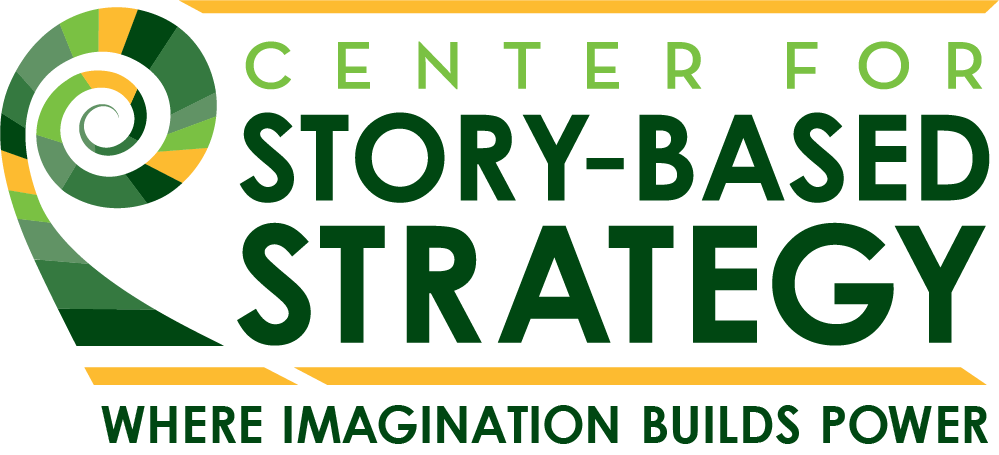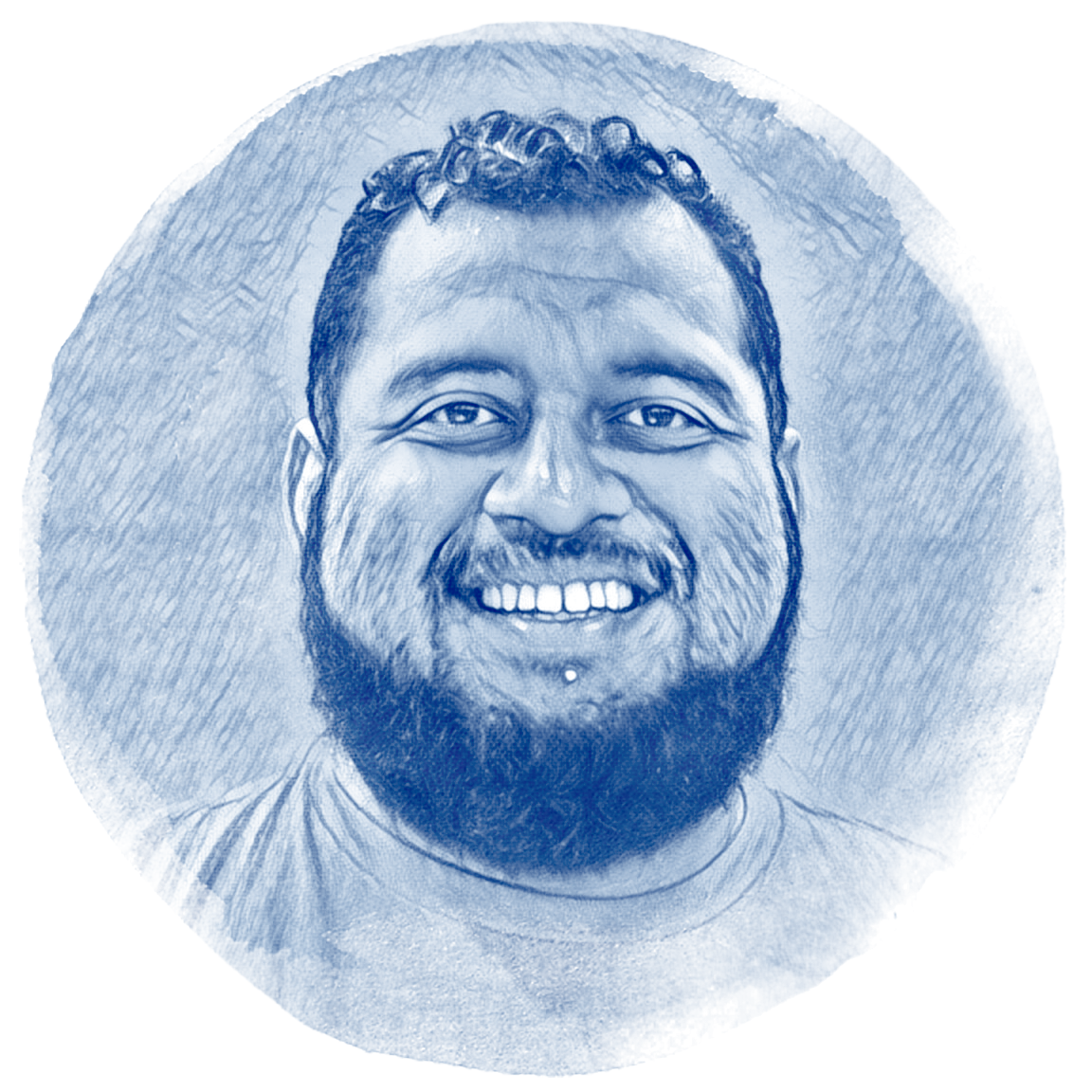Stressed, Unstressed: What the Dothraki language taught me about activism and self care
Dothraki emoji by @tunayayo
by Reuben “Tihi” Hayslett
Everyone’s self care routine looks different. In 2015, this is what mine looked like: crack open the laptop, pull up YouTube, spend the evening shifting my tongue back and forth in my mouth to make sounds that I either took for granted or never developed in English. I’d lock my bedroom door and try to keep my voice down because I knew I looked and sounded silly. But in the privacy of my own room, I was in linguistic-nerd heaven!
Learning a new language means rediscovering how your mouth and your voice work together. Earlier that year, I felt cut off from both. I had always considered myself an activist and a writer. But I noticed a shift. I had stopped writing, and focused solely on activism work. I was leading campaigns against corporations and corrupt politicians – and some of them were even working – but I was burning out.
“Learning a new language means rediscovering how your mouth and your voice work together.”
A herniated disc in my lower spine was pulsating dull, unignorable, bluish spears of pain up and down my left leg. Walking to work was an endurance test, and once I got there I felt trapped. Not just trapped like the way chronic invisible pain keeps you locked inside your own body, but trapped in the structural way where many activists of color, queer folks, non-abled bodied folks, women, immigrants, and religious minorities brush up against the same systemic “-isms” we claim to fight against within our own progressive organizations.
At the time I didn’t even know the term burnout, so I used words like “stuck,” “frustrated,” and “stressed.”
“When children play, they use their entire selves. Their imaginations and their bodies, their voices and their movements. At the CSS Advanced Training, I got to experience some of that again.”
As the year continued, the chronic pain subsided and I went to my first Advanced Training at the Center for Story-based Strategy (CSS). CSS is a training organization that supports movement workers to see and use story as a critical element in shifting power. It felt like CSS was speaking to both sides of my brain; both the writer in me and the activist in me were intrigued. But I showed up to the Northern California retreat exhausted and nervous. Exhausted from my job, even though I was 3,000 miles away from it, and nervous about my body. Nervous that a week of mostly sitting down working in small groups would bring my pain back. Luckily it didn’t, and instead, something amazing happened. During “Imagination Sprints,” I got to play. The trainers demonstrated how organizers throughout history have used imagination to make better worlds not just imaginable, but possible, palpable, and visible. Even beyond only justice, those imaginable worlds came about through laughter and joy and love for people, all our people, who just want to get free. The training showed us the power of collaborative brainstorming and the usefulness of strengthening our radical imagination muscles.
During the training, we learned from a group of amazing organizers and activists just how central imagination is to building power. And we did it through laughter, dancing, collaborative brainstorming, and pushing each other to the edges of what we believed was possible and farther. As a 30-something, it had been decades since I felt that sensation of play.
When children play, they use their entire selves. Their imaginations and their bodies, their voices and their movements. At the CSS Advanced Training, I got to experience some of that again.
I learned so much at the Advanced Training that week, but most importantly, I remembered the importance of creativity and play. After so many months burning out on my job I finally felt unstuck, unfrustrated, and unstressed.
In college, I learned to play with language, studying linguistics and creative writing, and I was determined to bring that play back into my life after the Advanced Training. But finding out how was a challenge.
Campaign work requires long hours, under stressful and shifting situations. I couldn’t find the will to come home and write short stories and poetry (something I used to do a lot of). So I looked to linguistics and discovered that the number 1 hit TV show in the U.S., Game of Thrones, hired a linguist to create fictional languages, Dothraki and, later, Valyrian. If it was simple enough for actors on the show to learn, I figured, it should be simple enough for me to learn Dothraki too.
“Hobbies are essential, especially for activists. Often, we’re fighting campaigns for our lives, our families, our basic human dignity, but what are all those worth if we don’t also have sources of joy? ”
Hobbies are essential, especially for activists. Often, we’re fighting campaigns for our lives, our families, our basic human dignity, but what are all those worth if we don’t also have sources of joy? Hobbies can help us stay in touch with joy, and that joy can serve as powerful fuel, especially when mixed with righteous anger.
I started with just sounds. I shifted my tongue around the vowels and consonants of Dothraki until I felt comfortable and then moved on to verbs. And then nouns, and then simple sentences, and then complex grammar and syntax.
And all the while, I got increasingly frustrated with the TV show. Dothraki, on the show, are portrayed and ruthless, violent, male-dominated cultures that rape and pillage. But here I am, learning that the Dothraki language has inherently gender neutral pronouns. In Dothraki, “me” means he, she, and anything else in between (or outside of) that spectrum. In Dothraki, “zhey” can stand in for “Mr.,” “Ms.,” “Mx.” or anything else, as long as it’s said respectfully.
In English the word dark also has a connotation for being evil or wicked (“dark wizards,” “black magic”), but in Dothraki the word for dark is also the same word for depth, while pale is the same word for shallow. In Dothraki the words for heavy and thick are also used to describe something complicated and intricate, while the words for skinny can also be used to describe something simple.
Even at this point, one year in, I still couldn’t speak Dothraki. I just knew a collection of words. I was in a sandbox, with a shovel and a pail, but I wasn’t making anything yet. It wasn’t until I started thinking in the language that I could really start to play!
Dothraki use their bodies and the nature around them to talk about their thoughts and emotions. In Dothraki, you’re not “annoyed,” you’re itchy. When you’re “anxious,” your stomach is screaming. When you approve of something, you “smile at it.” To let or allow someone to do something is to give from yourself to that person.
In a world where Facebook, Uber, Airbnb and Grubhub increasingly isolate ourselves and allow corporations to divest from and gentrify our communities, the Dothraki language is very grounded and connected, not just to other people, but to the land. (The Dothraki people are also anti-capitalists, there’s no word for money because they don’t believe in it.)
After four years of learning Dothraki, mostly on my own, I can finally speak it, and speak it to other Dothraki language speakers in our own small but global Dothraki community. And now, we’re really playing (time zones be damned)!
But as I’ve grown into Dothraki, and my desire to share the Dothraki language with others, I’ve also faced some blowback from family, friends, and even people in my activist community.
“Why are you learning a fake language?”
“Why can’t you learn X language instead?”
“Aren’t you worried about what people will think?”
At the Center for Story-Based Strategy, we talk a lot about naming underlying assumptions. That’s what I hear when I’m asked questions like these. Assumptions are needed to help us make sense of the world, but they also quickly reveal a person’s worldview. When I was asked, “why are you learning a fake language,” I saw the assumption that, because a language is created for a television, it’s somehow not real. Even though it contains all the same linguistic properties that all other spoken languages have.
“But, beyond my own frustration, there lies an even deeper underlying assumption, the one I feel at the tips of my fingers and the edge of my hairline: that “serious activists” who do “serious work” can’t play. ”
There’s also an assumption that learning and speaking new/different languages is only utilitarian. That any other “real” language is somehow more davra... I mean, “useful”.
Last year, I was passed up for a professional opportunity because of my status as a Dothraki speaker. There was an underlying assumption that I, as a Dothraki language speaker, tacitly endorsed the values of the Game of Thrones creators.
But, beyond my own frustration, there lies an even deeper underlying assumption, the one I feel at the tips of my fingers and the edge of my hairline: that “serious activists” who do “serious work” can’t play. But play is how we imagine different worlds so that we can move towards and build them. Play is what I do so I can continue working for justice and liberation. Play is how heal myself (body included). Play is how I learn who I am.
In college, a professor told me this proverb: to learn a new language is to gain a new soul. The proverb isn’t specific about natural or constructed languages, but my body believes there’s no difference. What I’m beginning to discover, now that I know Dothraki words, and how to pronounce them, and how to put them together to form sentences, and how to express myself with them to make and create new meanings, is that I do feel different. My tongue has to move differently in Dothraki than it does in English, and sometimes this changes my face. I open up more, my internal weather is brighter. Learning to speak Dothraki has made me feel like I did after my first Advanced Training at the Center for Story-based Strategy: unstuck, unfrustrated, unstressed.
About the Author
Reuben “Tihi” Hayslett
In Dothraki, Tihi means “behold” or more simply “eyes.” Reuben “Tihi” Hayslett is a queer activist, writer and storyteller who has been a part of the CSS training network since his first Advanced Training in 2015. While working as an online campaigner for the Working Families Party, Tihi won consumer campaigns against Netflix, UPS, and worked with a coalition to remove David Koch from the Boards of the Smithsonian and PBS. He currently works at Demand Progress, leading online campaigns in the tech sector focusing on privacy and human rights. Tihi holds an MFA in Creative Writing and his debut short story collection, Dark Corners, is published by Running Wild Press. As one of the few fluent Dothraki speakers in the world, Tihi recently worked on the upcoming Netflix series Daybreak as a Dothraki Language Consultant.
(UPDATED on 6.19.19) Interested in an even deeper analysis about the language of Dothraki Language? Check this out! https://www.daytranslations.com/blog/2019/03/deconstructing-dothraki-language-13673/


